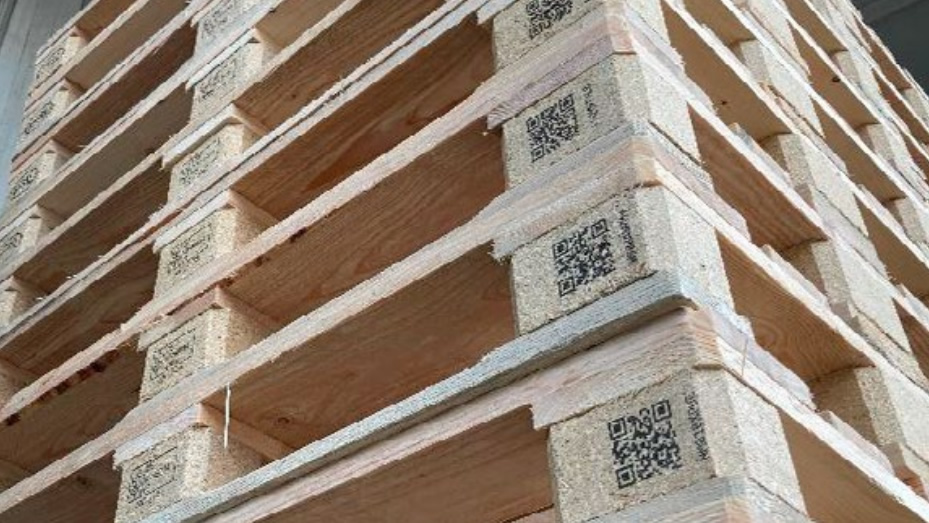EPAL pallets, tracking and sustainability in logistics

Europe has noted that packaging is a steadily increasing source of waste. In 2018, it generated a revenue of 355 billion euros in the EU, and its volume grew from 66 million tons in 2009 to 84 million in 2021. That year, European citizens produced 188.7 kg of packaging waste per capita, a quantity that, without new measures, is expected to rise to 209 kg by 2030.
EPAL, the international association dedicated to the exchange of Euro pallets, is well aware of this. Synonymous with quality, safety, and sustainability in the logistics sector, EPAL manages the open pool for the international exchange of Euro pallets and quality control in the production and repair of Euro pallets, box pallets, and other load carriers.
The role of EPAL Euro pallets in the circular economy
Recently, the EU Packaging and Packaging Waste Regulation (PPWR) was approved. The Commission, Parliament, and Council have recognized the great potential of pallets and other transport packaging in promoting reuse. There is no doubt that European institutions have viewed EPAL’s open pallet pool as a positive example of an efficient reuse system.
In fact, the EPAL Euro pallet exchange pool has been a virtuous example of sustainable circular economy for over thirty years. EPAL wooden Euro pallets make a significant contribution to climate protection. They store CO2, prevent waste, and improve the carbon footprint for users in industry, retail, and logistics through their reuse, exchange, repair, and recycling.
The goal is to reduce the growing amount of plastic and consumer packaging, as well as the waste and material consumption associated with them. In this context, wooden pallets offer many advantages, from production to recycling.
EPAL pallets have an average lifespan of seven years. The exchange of pallets between companies from various sectors and EPAL's quality-controlled repairs ensure a long life. No waste is generated since the wooden parts and nails can be easily separated, and recycled materials can be reused.
Furthermore, pallets can be marked with QR codes and serial numbers, engraved directly onto the wood, useful for tracking. At Villa & Figlio, we offer a variety of technologies to meet all wood coding needs, including pallets and other supports requiring marking that complies with regulations.
This is the foundation for sustainable pallet logistics that will become the international standard in the future.
The benefits of EPAL QR Euro pallets
- UNIQUE IDENTIFICATION AND TRACEABILITY
Maximum transparency in pallet management and in the flow of goods. Each EPAL QR Euro pallet is identified by a unique code, making it easy to retrieve information about storage times, as well as rotation and pallet location details.
- MULTIPURPOSE SMART PALLETS
The simple scanning of the QR code provides access to the pallet's digital passport. It instantly makes available all information about the manufacturer, the age of the EPAL QR Euro pallet, and the number of times it has been used within the EPAL network.
- CARRIERS OF INFORMATION AS WELL AS GOODS
EPAL QR Euro pallets are equipped with a QR code that boasts proven durability and is easily readable with any type of barcode scanner. As a result, there will no longer be a need for paper labels, saving time and printing costs and preventing waste generation.


